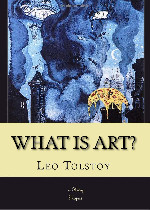
What is art? (Russian: Что такое искусство? Chto takoye iskusstvo?) is a book by Leo Tolstoy. It was completed in Russian in 1897 but first published in English due to difficulties with the Russian censors. Tolstoy cites the time, effort, public funds, and public respect spent on art and artists as well as the imprecision of general opinions on art as reason for writing the book. In his words, "it is difficult to say what is meant by art, and especially what is good, useful art, art for the sake of which we might condone such sacrifices as are being offered at its shrine".
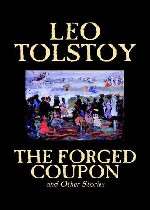
The Forged Coupon and Other Stories(伪造的证券和其他故事) 立即阅读
The Forged Coupon (Russian: Фальшивый купон, Fal'shivyi kupon) is a novella in two parts by Leo Tolstoy. Though he first conceived of the story in the late 1890s, he did not begin writing it until 1902. After struggling for several years, he finally completed the story in 1904; however, it was not published until some of Tolstoy's shorter works were collected and anthologized after his death in 1910.
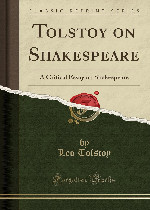
Tolstoy on Shakespeare(托尔斯泰论莎士比亚) 立即阅读
Mr. Crosby's article on Shakespeare's attitude toward the working classes suggested to me the idea of also expressing my own long-established opinion about the works of Shakespeare, in direct opposition, as it is, to that established in all the whole European world. Calling to mind all the struggle of doubt and self-deceit,—efforts to attune myself to Shakespeare—which I went through owing to my complete disagreement with this universal adulation, and, presuming that many have experienced and are experiencing the same...
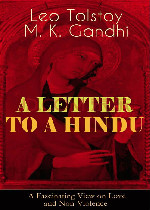
A Letter to a Hindu(给一个印度人的信) 立即阅读
"A Letter to a Hindu" (also known as "A Letter to a Hindoo") was a letter written by Leo Tolstoy to Tarak Nath Das on 14 December 1908. The letter was written in response to two letters sent by Das, seeking support from the famous Russian author and thinker for India's independence from British colonial rule. The letter was published in the Indian newspaper Free Hindustan. The letter caused the young Mohandas Gandhi to write to the world-famous Tolstoy to ask for advice and for permission to reprint the Letter in Gandhi's own South African newspaper, Indian Opinion, in 1909.
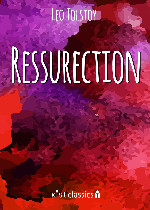
Resurrection (Russian: Воскресение, Voskreseniye), first published in 1899, was the last novel written by Leo Tolstoy. The book is the last of his major long fiction works published in his lifetime. Tolstoy intended the novel as an exposition of the injustice of man-made laws and the hypocrisy of the institutionalized church. The novel also explores the economic philosophy of Georgism, of which Tolstoy had become a very strong advocate towards the end of his life, and explains the theory in detail.
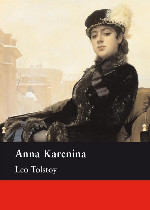
Anna Karenina (Анна Каренина) ist ein Roman von Leo Tolstoi, der in den Jahren 1873 bis 1878 in der Epoche des russischen Realismus entstand und als eines von Tolstois besten Werken gilt. Das Buch wurde 1877/78 veröffentlicht und handelt von Ehe und Moral in der adligen russischen Gesellschaft des 19. Jahrhunderts.
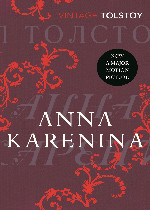
Anna Karenina (Анна Каренина) is a novel by the Russian writer Leo Tolstoy, published in serial installments from 1873 to 1877 in the periodical The Russian Messenger. Tolstoy clashed with editor Mikhail Katkov over political issues that arose in the final installment; therefore, the novel's first complete appearance was in book form in 1878. Widely regarded as a pinnacle in realist fiction, Tolstoy considered Anna Karenina his first true novel, after he came to consider War and Peace to be more than a novel.
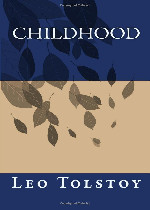
Childhood is the first published novel by Leo Tolstoy, released under the initials L. N. in the November 1852 issue of the popular Russian literary journal The Contemporary. It is the first in a series of three novels and is followed by Boyhood and Youth. Published when Tolstoy was just twenty-three years old, the book was an immediate success, earning notice from other Russian novelists including Ivan Turgenev, who heralded the young Tolstoy as a major up-and-coming figure in Russian literature.
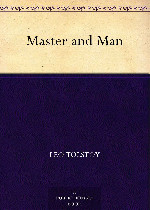
In this short story, a land owner named Vasili Andreevich Brekhunov takes along one of his peasants, Nikita, for a short journey to the house of the owner of a forest. He is impatient and wishes to get to the town more quickly 'for business' (purchasing the forest before other contenders can get there). They find themselves in the middle of a blizzard, but the master in his avarice wishes to press on. They eventually get lost off the road and they try to camp. The master's peasant soon finds himself about to die from hypothermia.